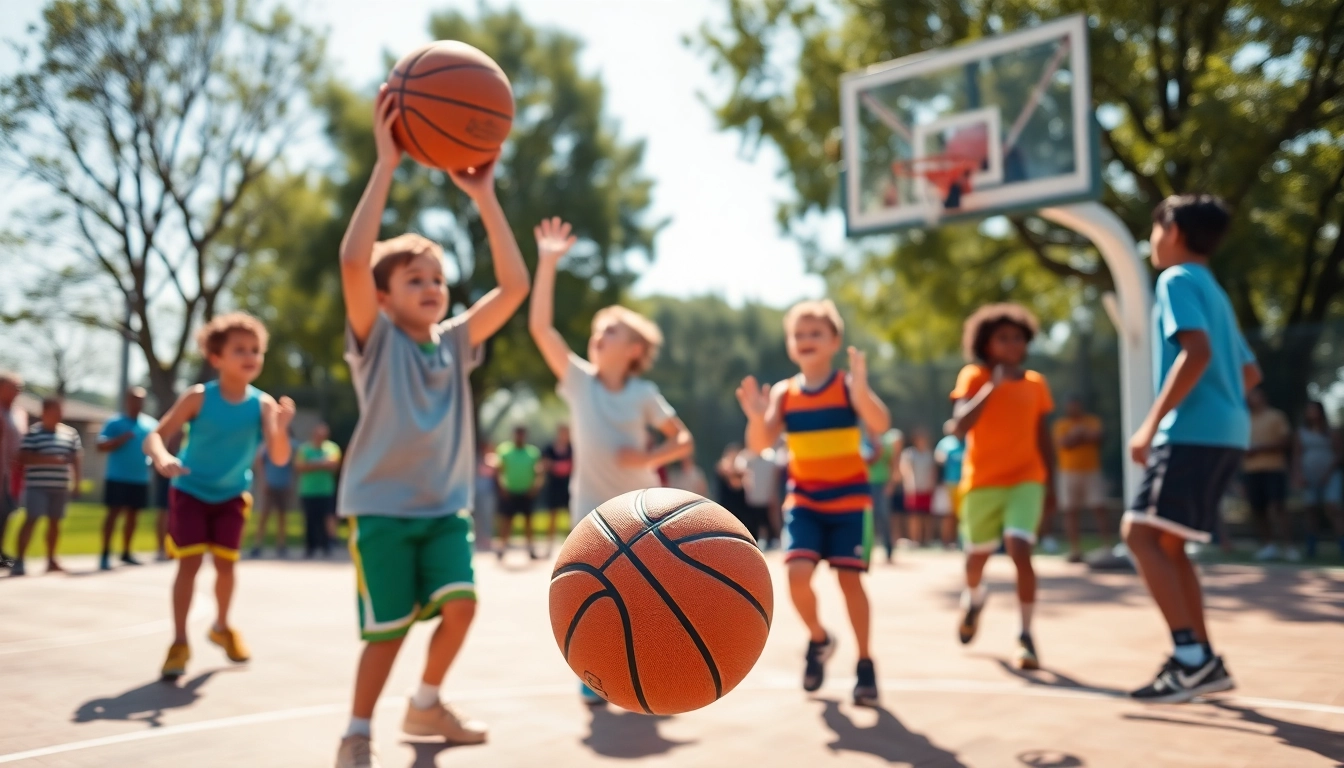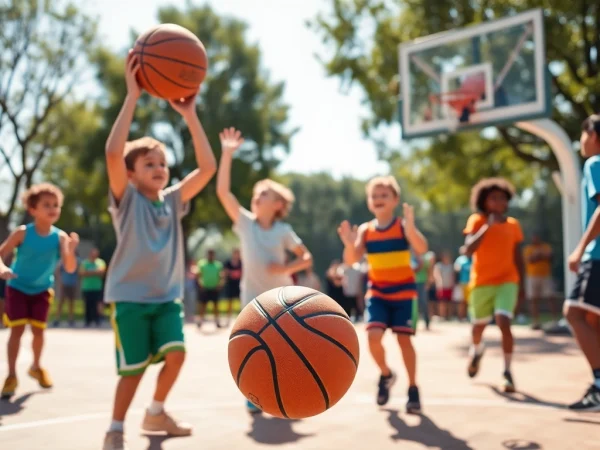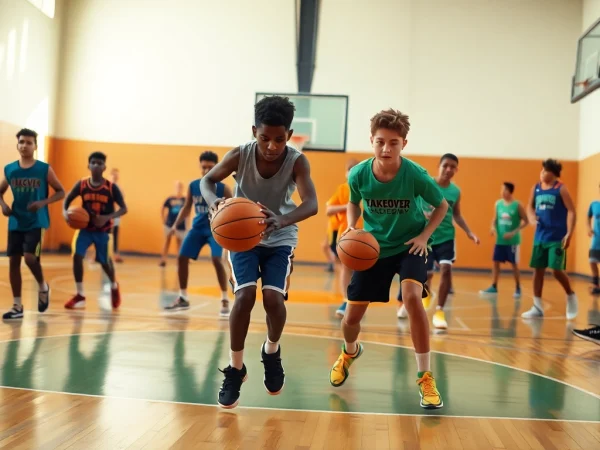Empowering Young Basketball Enthusiasts: Skills, Tips, and Community Engagement
Understanding the Passion of Young Basketball Enthusiasts
The unwavering passion of young basketball enthusiasts is a force that unites players, coaches, and fans alike. For these aspiring athletes, basketball is more than just a game; it’s a lifestyle that shapes their development into skilled players and well-rounded individuals. Engaging in this sport fosters not only physical fitness but also essential life skills such as discipline, teamwork, and resilience. Supporting young basketball enthusiasts in their journey can pave the way for incredible opportunities, both on and off the court.
The Importance of Youth Sports in Development
Participating in youth sports has far-reaching effects on the development of children and adolescents. Engaging in activities like basketball helps improve physical health, encourages social interactions, and builds self-esteem. Studies show that children involved in sports are more likely to maintain healthy habits into adulthood.
From building cardiovascular fitness to enhancing motor skills, basketball offers a comprehensive workout. Additionally, being a part of a team cultivates friendships and a sense of belonging, which are crucial during the formative years. Research indicates that youth involvement in sports correlates with better emotional regulation, reduced anxiety, and increased academic performance.
Identifying Key Skills for Young Players
To become proficient in basketball, young players need to develop several fundamental skills. Key abilities include:
- Dribbling: Mastery of dribbling allows players to navigate the court effectively while maintaining control over the ball.
- Shooting: Developing a reliable shooting technique is essential for scoring points. Understanding different shot types, such as layups, jump shots, and three-pointers, is vital.
- Passing: A successful player must be able to pass the ball accurately and efficiently to teammates, facilitating teamwork and effective gameplay.
- Defense: Learning defensive strategies ensures that players can protect their basket and challenge opponents effectively.
Coaches and parents should prioritize these skills during practice, emphasizing gradual development and consistent feedback.
Encouraging Teamwork Among Young Basketball Enthusiasts
Teamwork is at the heart of basketball. Coaches should instill the importance of collaboration, communication, and support among players. Teaching young athletes how to function as a cohesive unit can significantly enhance their performance on the court.
Incorporating team-building exercises into practices can strengthen bonds among players. Activities that promote trust, understanding, and respect can lay the groundwork for successful teamwork. When young players realize that their success rests upon collaboration, they are more likely to develop a love for the game and each other.
Training Techniques for Young Basketball Enthusiasts
Fundamental Skills: Dribbling, Shooting, and Passing
Before progressing to complex strategies and plays, young players must first master the fundamentals. Regular practice focusing on these three core skills is crucial for building a solid foundation. Coaches can implement targeted drills aimed at enhancing dribbling, accurate shooting, and sharp passing.
For dribbling, implement drills that encourage both hands, such as cone drills that require players to navigate through obstacles. Shooting can be refined through repetitive practice in various positions and situations, while passing can be improved through partner drills that emphasize accuracy and timing.
Incorporating Fun Drills into Practices
Engagement is key for young basketball enthusiasts. By incorporating fun drills into practices, coaches can maintain enthusiasm while teaching valuable skills. Basketball-themed games, such as knockout or pig, offer enjoyable ways to practice shooting skills while building a friendly competitive spirit.
Moreover, utilizing music during practice can energize the session and create a positive atmosphere. Fun relay races that include dribbling obstacles or shooting challenges lead to active participation and enhance skill retention.
Enhancing Physical Fitness for Young Athletes
Physical fitness is crucial for athletic performance, and young basketball enthusiasts should be encouraged to maintain overall health through a balanced regimen of exercise and nutrition. Strength training appropriate for their age can enhance performance, provided it is supervised to prevent injury.
Additionally, focusing on flexibility through stretching exercises can promote injury prevention and improve shooting mechanics. Implementing agility drills, such as ladder drills or shuttle runs, will enhance speed and coordination, vital attributes for success on the court.
Building a Supportive Community for Young Basketball Enthusiasts
Connecting with Local Basketball Leagues
Community engagement is a vital part of a young athlete’s basketball experience. Connecting players with local leagues can introduce them to a wider network of peers and coaches. These leagues often provide structured competitions, exposure to various playing styles, and the opportunity to meet other aspiring athletes.
Additionally, local leagues typically offer clinics and workshops that can further hone individual skills. Encouraging participation in these programs not only supports skill development but also fosters a lifelong love for the sport.
Involving Parents and Coaches in Development
Both parents and coaches play a pivotal role in the development of young basketball enthusiasts. Parent education programs can equip them to provide constructive support for budding athletes. Communication between parents and coaches about player progress creates a supportive environment that celebrates achievements and addresses concerns.
Coaches should encourage parental involvement by inviting them to observe practices and games. This not only allows for a community atmosphere but also generates enthusiasm and support, inspiring young players to progress further.
Success Stories: Local Heroes Among Young Talent
Many successful basketball players credit their early experiences in youth leagues and community programs as a foundation for their careers. Highlighting success stories of local heroes can inspire young players and demonstrate that dedication and hard work can lead to incredible achievements.
Mentorship programs that connect young players with local athletes can offer guidance and motivation. Sharing these success stories creates relatable role models that help instill a sense of possibility and belief in their abilities.
Inspirational Resources for Young Basketball Enthusiasts
Books and Literature That Motivate Young Players
A wealth of literature exists to inspire young basketball enthusiasts. Books featuring biographies of legendary basketball players, novels set against the backdrop of competitive basketball, and instructional manuals provide valuable insights. Some excellent picks include:
- “The Crossover” by Kwame Alexander: A novel that combines love for basketball and poetry, captivating readers with its rhythm and storytelling.
- “We March” by Shane Evans: This picture book introduces young readers to the Civil Rights Movement through the lens of historical events, tying in basketball’s impact on society.
- “The Basketball Book for Kids” by Selina Smith: An excellent resource for young players, providing basics and techniques to engage and enhance skills.
Online Training Videos and Tutorials
The rise of digital platforms has made training more accessible for young athletes. Platforms like YouTube host a plethora of instructional videos targeting various skills, drills, and strategies for basketball players. Coaches can curate playlists of these resources and share them with their teams to supplement traditional coaching.
Several basketball training apps offer tailored drills and tracking capabilities, which can motivate young players to engage in regular practice. These tools can provide real-time feedback for improvement, making them excellent additions to any basketball training regimen.
Finding Role Models and Mentors in the Sport
Identifying role models in basketball can motivate young enthusiasts to persevere through challenges. Role models can include players within their local community, professional athletes, and even coaches who demonstrate exemplary sportsmanship and dedication.
Mentorship programs can also play a crucial role in bridging the gap between aspiration and achievement. Coaches and more experienced players can share insights, provide guidance, and inspire less experienced players, fostering an environment that encourages growth.
Future Trends and Opportunities in Youth Basketball
The Rise of Technology in Training Young Players
As technology continues to evolve, so too does its influence on youth training in basketball. Video analysis software allows players and coaches to break down footage of games and practices, providing invaluable insight into performance metrics and areas for improvement.
Wearable technology, such as heart rate monitors and fitness trackers, can also play a role in optimizing training routines. Understanding cardiovascular performance helps tailor workouts that enhance fitness while minimizing the risk of injury.
Innovative Programs for Skills Development
Innovative basketball camps and clinics have emerged that incorporate unique training methodologies, such as mindfulness and leadership skills alongside physical conditioning. Programs focusing on holistic development teach young players the importance of mental readiness, emotional regulation, and leadership in a team context.
Participation in such programs not only sharpens athletic skills but also equips young players with tools to navigate their personal and athletic journeys positively. Coaches and organizations should actively seek partnerships with these innovative programs to offer greater opportunities to their players.
Encouraging Diversity and Inclusivity in Youth Basketball
Promoting diversity and inclusivity is essential for the growth of sports like basketball. Programs that welcome children from various backgrounds create a richer atmosphere, fostering understanding and collaboration among players from different walks of life.
By encouraging participation from underrepresented groups, basketball organizations can generate a diverse base of enthusiasts, enhancing the overall quality of the sport. Establishing scholarships, outreach programs, and free clinics can remove barriers to entry, ensuring that the passion for basketball is accessible to everyone.




